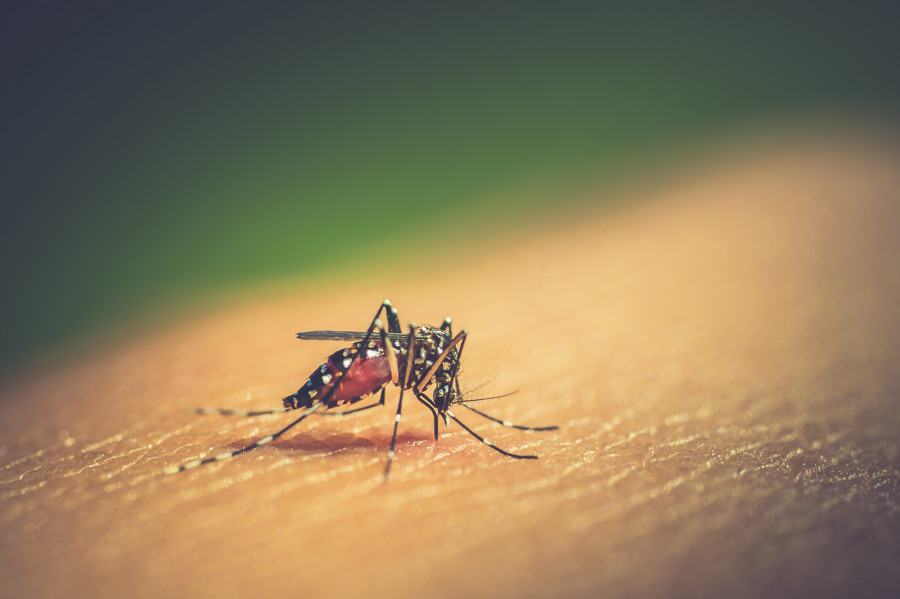Editorial
Viral effect
The dengue crisis will get much worse if immediate measures are not taken to solve it.
As if Covid-19 and cholera were not enough, dengue fever now has the country in its grip as cases continue to rise. As of Tuesday, September 13, a total of 11,065 cases had been reported across the country, with Bagmati province recording the highest number (8,390) followed by Lumbini(1,421). Among the top 10 districts reporting dengue cases, Lalitpur, Kathmandu, Makwanpur and Rupandehi have the highest numbers: 3,793, 2,569, 1,112 and 594 respectively. Nine patients have already succumbed to dengue-related complications even as hospitals report running out of beds and capacities for treatment.
The government's response, meanwhile, has been slow and sluggish as usual. Although the Ministry of Health and Population has allocated funds for seven provinces, 60 districts and 139 local levels to control dengue, infections show no signs of coming under control for lack of coordinated efforts. The best way to stop the virus is to find and kill female Aedes aegypti or Aedes albopictus mosquitoes that spread dengue, but officials aren't worried enough to go door-to-door and educate the people. It has been months since infections were first reported, but it is only now that the Health Ministry is considering the option of large-scale fogging. If the dengue outbreak continues in this vein, it could put our healthcare system under great strain. We saw during the Covid-19 crisis that it is only when the problem begins to get out of our hands that we start looking for solutions.
The dengue crisis is expected to become dire during the Dashain holidays, when dengue-carrying people will travel en masse from cities to villages, and mosquitoes will become more active during the post-monsoon period, with concomitant increase in transmission rates. Moreover, public hospitals in several districts across the country are running out of testing kits for dengue. As a result, the hospitals are sending patients to private ones, which often charge exorbitantly. Ultimately, many patients who cannot afford tests at private hospitals are undiagnosed and at a high risk of severe illnesses. The question is: Can the government that has been so disinterested in handling the issue today be trusted to swing into action when it grows into a full-blown crisis?
Notably, as with other vector-borne diseases, the dengue problem is here to stay, and we need a long-term vision to tackle it. Various studies suggest that global warming has altered the geographic prevalence of mosquitoes, with places previously known not even to have mosquitoes reporting dengue cases nowadays. We need not look further than the high Himalayan towns in Nepal. Dengue marked its presence in the lowlands in the mid-2000s and has been travelling uphill since. A general lack of awareness about this relatively new crisis has led to its continuous rise, with people unscrupulously leaving sewages open and collecting water in buckets for long durations, a significant cause for the breeding of mosquitoes. Boosting preventative awareness is, therefore, critical to stopping the spread of the virus. Authorities from all levels of the government should work together to provide people with necessary tools and information to locate breeding sites and stop the spread of dengue, sooner than later.




 9.34°C Kathmandu
9.34°C Kathmandu














